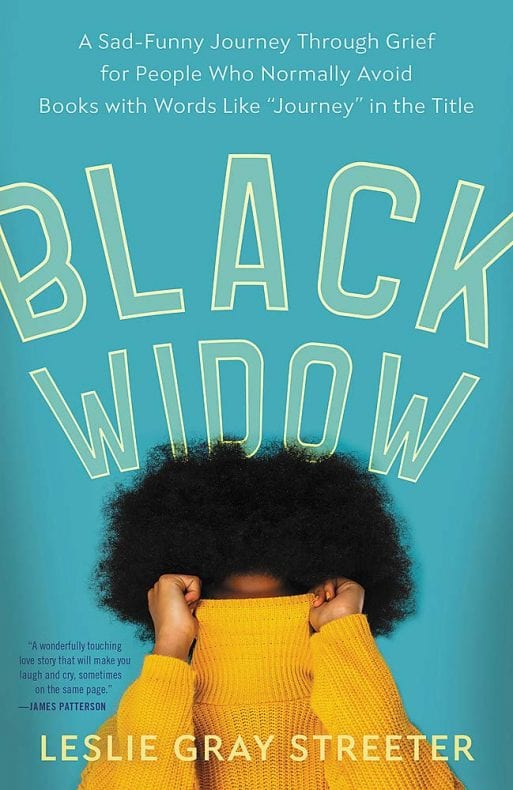 While “Black Widow” lives up to its subtitle — “A Sad-Funny Journey Through Grief for People Who Normally Avoid Books with Words Like ‘Journey’ in the Title” — it is as much a love story as a memoir of widowhood. Leslie Gray Streeter’s work is a testament to the power of shared memories to keep our loved ones with us — even after they’re gone.
While “Black Widow” lives up to its subtitle — “A Sad-Funny Journey Through Grief for People Who Normally Avoid Books with Words Like ‘Journey’ in the Title” — it is as much a love story as a memoir of widowhood. Leslie Gray Streeter’s work is a testament to the power of shared memories to keep our loved ones with us — even after they’re gone.
Streeter and her husband, Scott Zervitz, had been married for just five years and were in the process of adopting a son when Zervitz died suddenly of a heart attack. Just as their family life was getting started, Streeter found herself a 44-year-old widow with a not-quite-adopted toddler in tow.
“Black Widow” is a deeply affectionate, brashly hilarious look at the intricacies of grief, family, and getting “on with the show.” Streeter pulls no punches in describing the gut-wrenching pain of a love cut short, but she also shares the parts of her grief that don’t fit our typical image of a mourning wife, like bingeing on “Grief Cake” and “the Chicken of Bereavement” or having to be talked out of wearing that leopard-skin dress her husband always loved to the funeral.

Author Leslie Gray Streeter
Credit: lesliegraystreeter.com
While death and comedy may seem an unlikely mix, Streeter’s memoir demonstrates the power of humor to reflect life’s absurdity when more serious prose falls short. She takes us through the highs, lows and bizarre tangents of a grieving mind with compassion and self-awareness.
Please don’t let Scott be dead. Don’t let it be true. It happened so fast, you know? Just like that, so easy, like a shrug. If Scott’s life — our life — could end with that little effort from the universe, like an afterthought, why can’t the universe just shrug in the other direction and give him back to me?
“Black Widow” recounts the months following Zervitz’s death — arranging the funeral, moving to a new house, going back to work, finalizing the adoption — interspersed with stories of how Streeter and Zervitz met and fell in love. The bond between them is palpable throughout the book, as is their devotion to two-year-old Brooks, whom Streeter struggles to guide through a child’s version of loss: “I don’t know how to explain permanence to a person whose footwear closes with Velcro.”
Streeter’s is a story of resilience and healing, but one that eschews any Hallmark shine to be real, raw, and messy in a way that anyone who’s been through grief can relate to. As she moves toward a new life without her husband, Streeter makes no apologies for doing so in her own way and in her own time.
In the Julia Roberts movie that is not my life, an overwhelming and catastrophic event becomes a catalyst for massive change. That would require more money, flexibility, and energy than is available to me at the moment. It’s hard enough to summon the strength to put on shoes or clothing with buttons and zippers; a whole reinvention is beyond me. But I can start with one thing, and if that doesn’t kill me, I can move on to something else.
“Black Widow” is an excellent read for anyone who’s ready to laugh at the strange, confusing, and deeply human process of grieving. Streeter writes like the best friend who always knows how to crack you up — even at a funeral.

 “Black Widow” by Leslie Gray Streeter
“Black Widow” by Leslie Gray Streeter


 How Dare You Die Now!
How Dare You Die Now!
 Debating Medical Aid in Dying
Debating Medical Aid in Dying
 “Help Me, Helen”
“Help Me, Helen”














